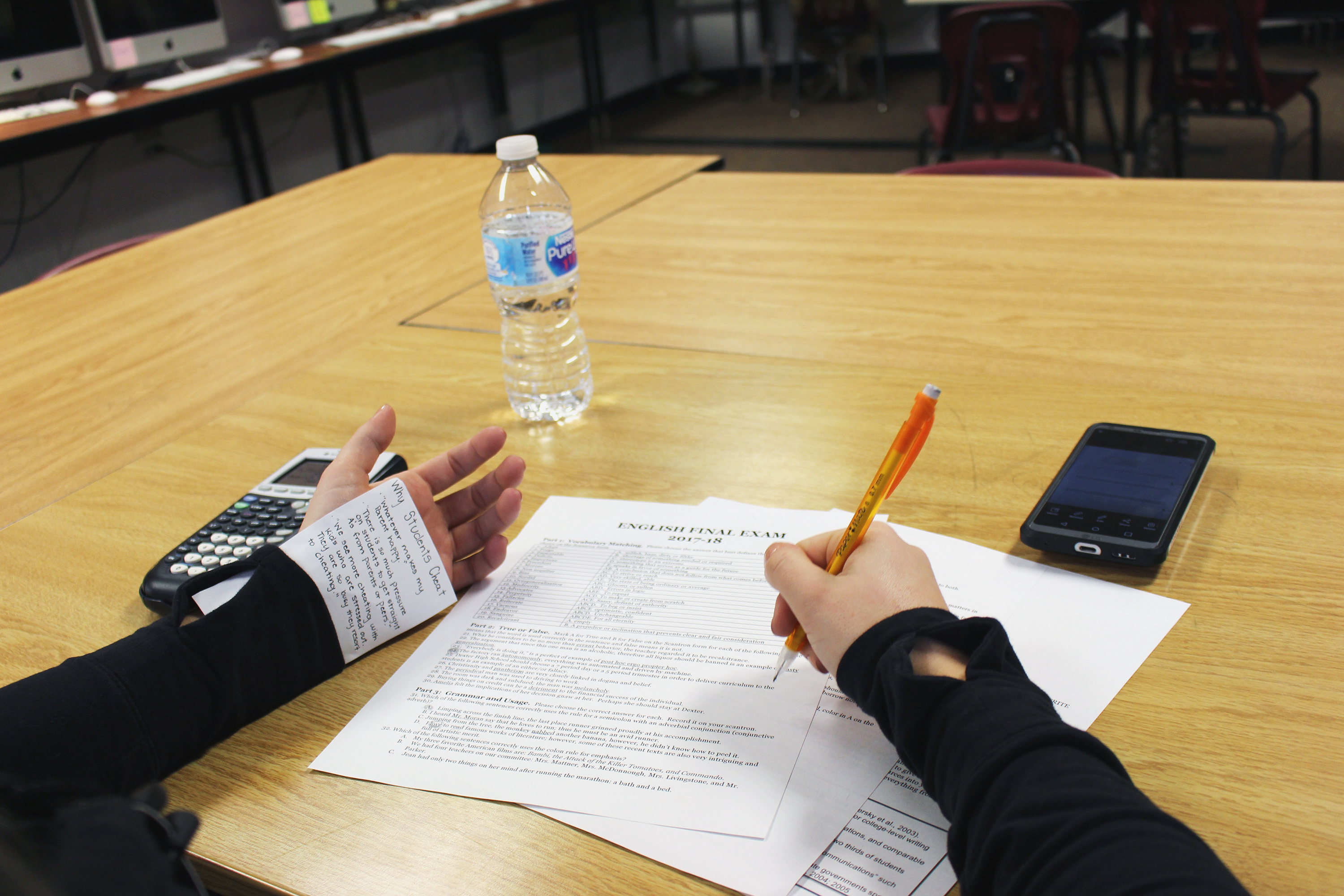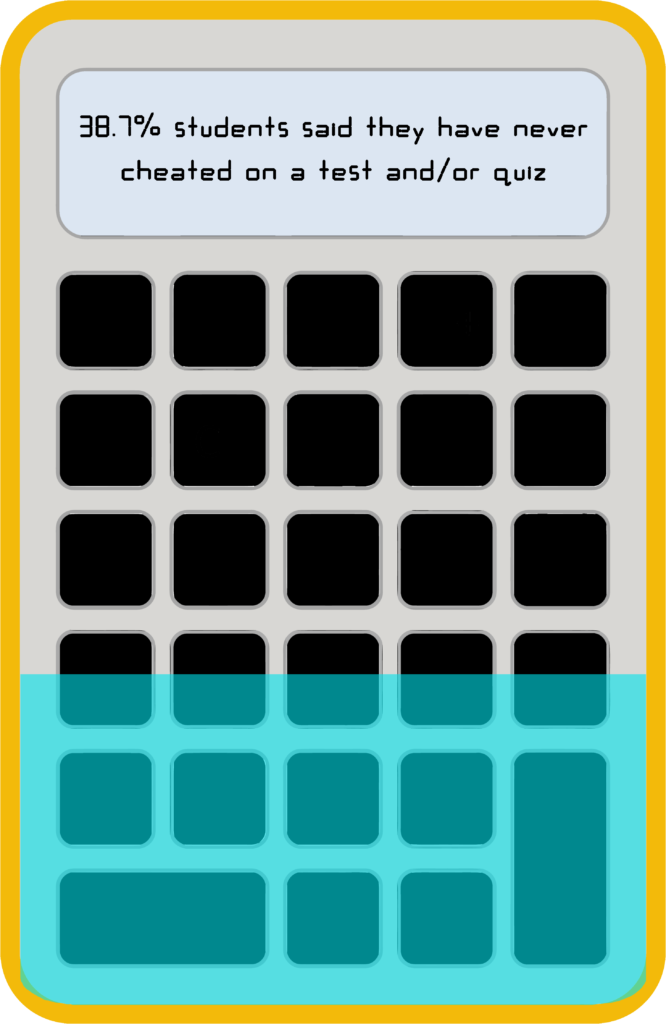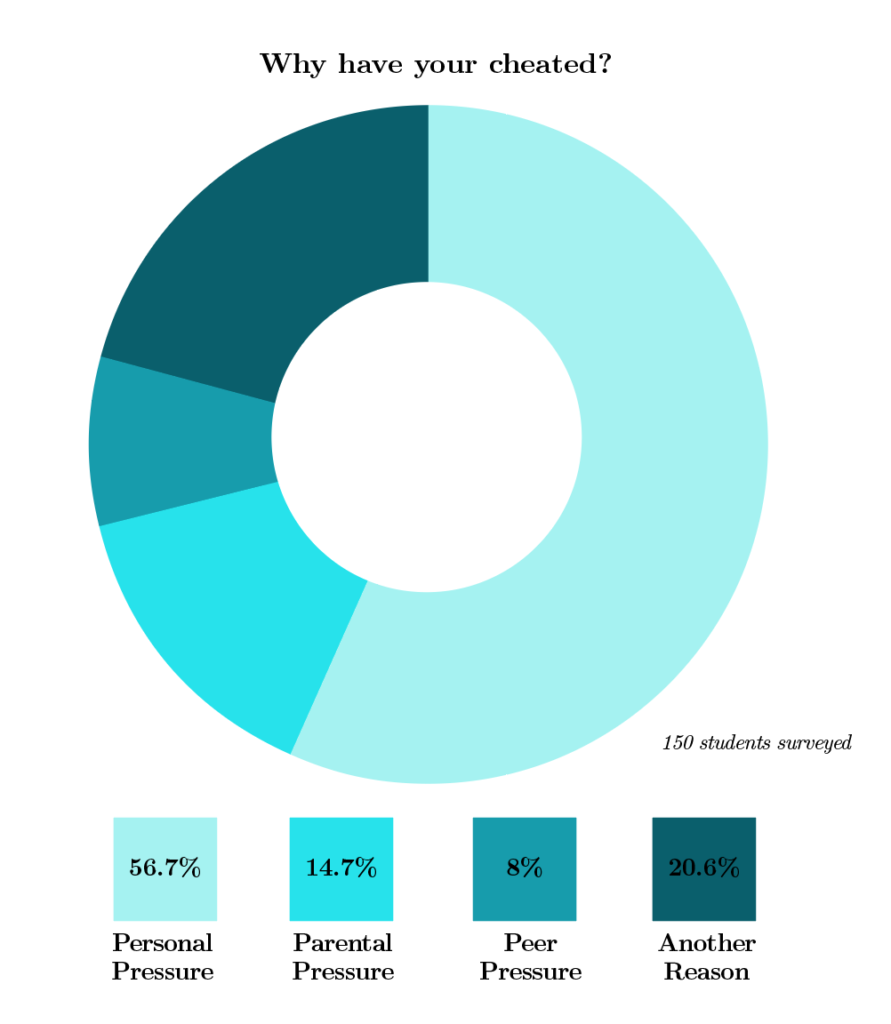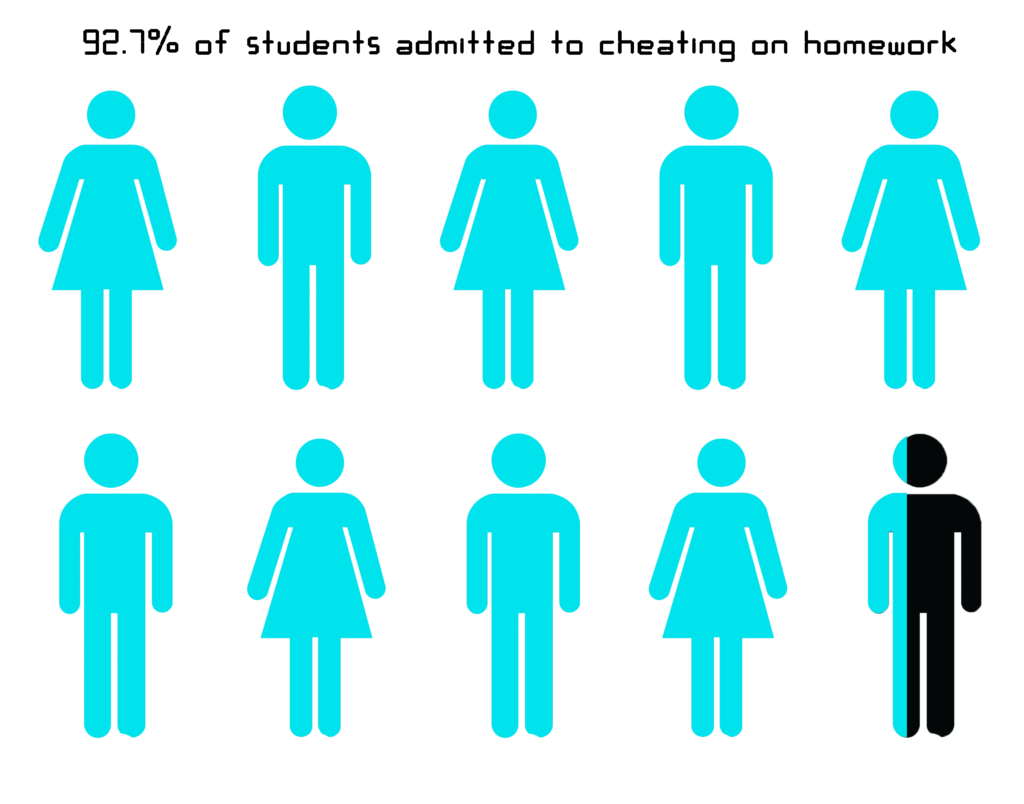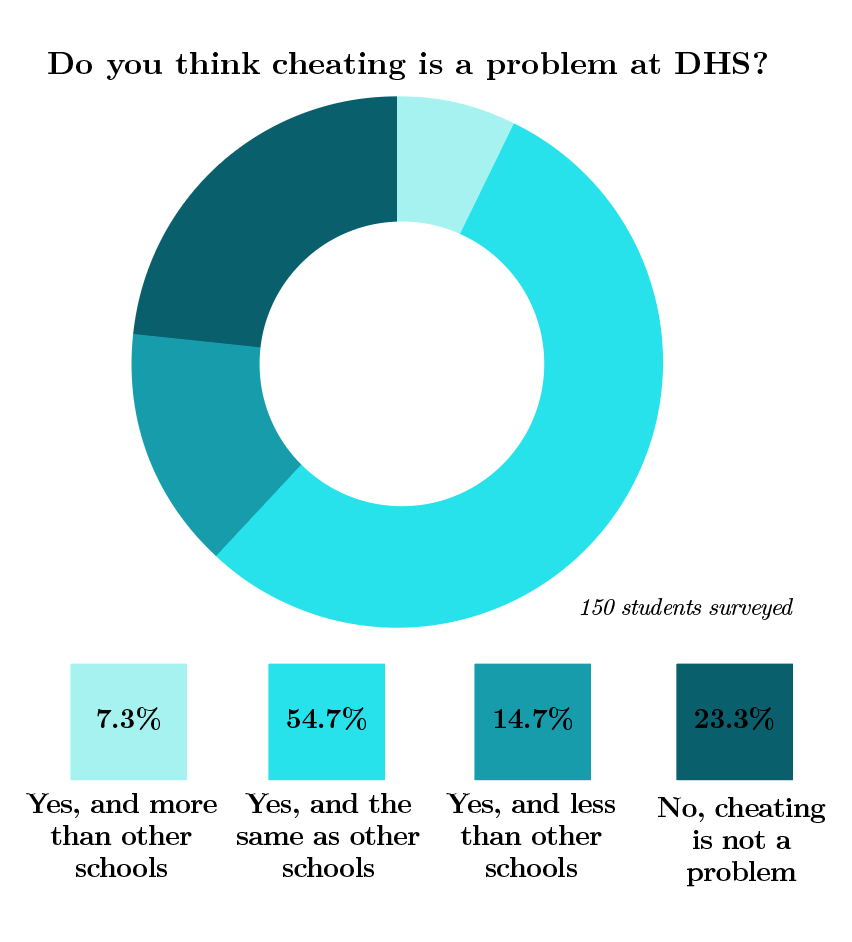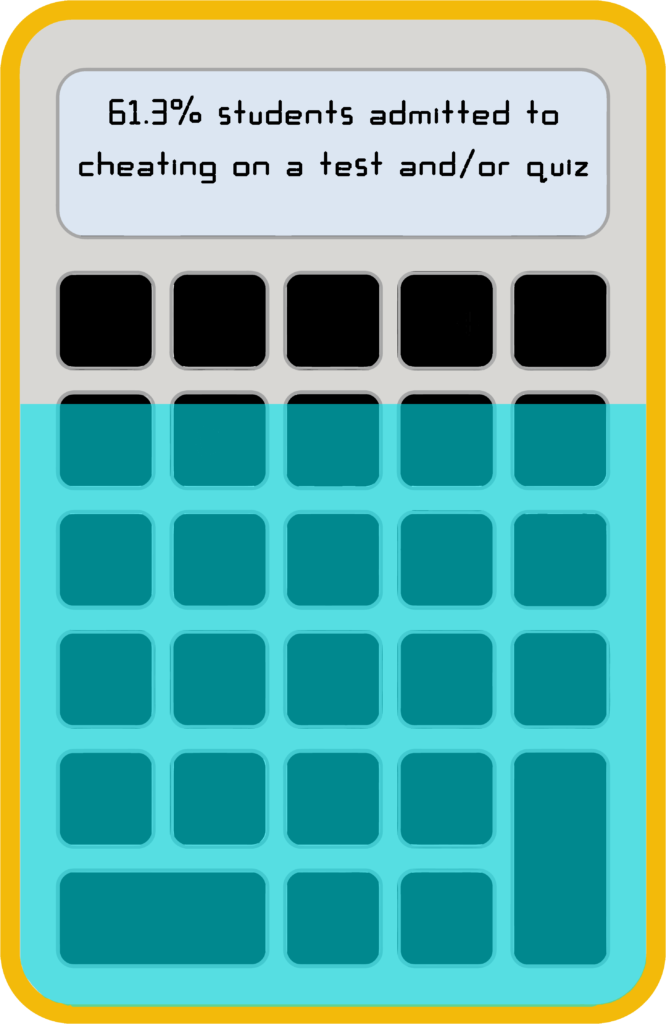The Squall talked with a variety of students about cheating, some of whom have been caught in the act and others who have been able to escape persecution. We have decided to leave these students anonymous to protect their identity and reputation amongst their teachers and their peers.
It was Wednesday, the night before my nine-week IB Biology exam. I had gotten little sleep the night before because I had been working all night on my AP government outline. This week was the worst possible week to have this biology exam. All my classes are extremely busy. My AP government test was today, my English commentary was this past Monday, and my Pre-Calc test was this last Tuesday.
I had worked so hard to do well on all of these, but, for some reason, I pushed studying for biology until the night before the exam. My heart is racing. It is worth such a big part of my grade and I could not imagine what my parents would do if they found out I bombed it. If Michigan sees that I got a D in IB Biology, there is no way they would ever accept me.
I quickly started to go through every unit, trying to absorb as much as I could, but it just was not cutting it. I laid down on my bed. If only I could use my notes during the exam, then I would for sure ace it. I studied so much for all my other tests, so why don’t I just let myself off easy just this once? I started to think of different methods. I could put a cheat sheet in my clear water bottle or keep my notes next to me on the floor. Both are too obvious. I kept thinking and before I knew it, I was writing down the steps to mitosis and meiosis on my arm. Just this once, I told myself.
This is just one scenario that exemplifies why kids cheat. Through observation, data, and interviews, The Squall found that the pressure of parents, teachers, peers, and themselves pressure students into cheating. It has been found that a lot of students appear to care more about the grades that appear in PowerSchool than actually learning the information, like this student above.
Why do kids cheat?
“Whatever makes my parent happy,” one student said.
Parental expectations as the root of stress was consistent in conversation with both students and faculty. Additionally, peer pressure to get good grades was prevalent.
The curiosity about their peers’ grades makes students ask their friends how they did on the test. The fear of being judged or being looked down upon often causes students to lie about their grade in response, work harder, or in some cases, cheat.
“I think students cheat because of stress,” a math teacher said. “There is so much pressure on students to get straight A’s from parents or peers. They have this idea that they need those grades.”
Some of that stress, a student said, is because of the importance that colleges place on grades.
“[I cheat] so I can go to college and actually make money in life,” a student said.
Methods
It is obvious cheating has become synonymous with education. When there is so much pressure to earn high grades, it doesn’t seem surprising that kids will do whatever it takes to have good grades.
With the advancement in technology, both students and teachers admitted that cheating has become easier.
“I’ve seen an increase in it the past few years,” a math teacher said. “The methods are becoming more possible, and resources are more readily available.”
One student told us all of their methods, including utilizing their technology.
“I’ve gotten answer keys on my phone, written formulas on pieces of paper in my pocket, [and] I’ve copied my neighbor’s paper,” they said. “[For] Google Classroom tests, I’ve Googled [the] answers. I’ve used a textbook during a test before, [too].”
One of the most common and easy ways to cheat is between classes. It can be something as simple as “on the last page, there’s a lot on gas laws,” “make sure to study Stalin,” or “for number 9, I answered ‘C’.”
One student told us why they chose to tell their friends about the recent test they took.
“I see my friends getting really stressed out because of school,” they said. “Tests shouldn’t be something they are crying about and staying up all night [for]. I wanna help them.”
Punishment
The Dexter Community Schools Parent-Student Handbook states that all acts of cheating will result in a zero. The handbook also claims that appropriate consequences outside of receiving a zero on the assignment will be given. It then splits up the act of cheating into two categories: “suspicious behavior” and “blatant actions.” Suspicious behavior includes instances in which a student uses their phone during the exam or a prolonged period where one student is looking at another student’s exam. Blatant actions consist of possessing a cheat sheet during or prior to the exam and acts of forgery.
Foreign language classes appear to be the most common classes to cheat in, based on conversations with students. One student told us their experience of being caught cheating on a Spanish retake test.
“[I was taking the retake and] I had a lunch on top of [my test review] and my Spanish teacher saw it, and said ‘We’re gonna have to talk about this,’” the student said. “A couple days later, [Assistant Principal] Koenig came down and he explained the situation. He explained my consequence. I got sent to Saturday school for it. It was a retake, so I didn’t get a new grade.”
Does the student still cheat?
“No. After that, I don’t cheat at all,” they said.
Despite all the instances of cheating that administrators are aware of and have punished, there are other instances in which teachers have witnessed cheating and did not act according to the student handbook.
“I was cheating straight from the class’s textbook during a test,” a student said. “The teacher saw me but didn’t do anything except for make me put it away.”
Another student referenced a specific class during their freshman year when asked if they have ever cheated.
“My whole freshman year history class consisted of someone taking a picture of the test and me looking at the picture,” a student said.
One student was caught cheating after an exam by sharing the answers.
“I got an A on the test. The school policy said I should’ve gotten a zero, but I went and talked to them [and] told them I took the test on my own, got an A on my own, and the students took a different test at a later time,” the student said. “I have a good rep, so I got less consequences than other kids would.”
Because this student was well-liked amongst teachers, they were not punished. Many teachers admitted to this favoritism.
“The issue is when you know the kid,” an English teacher said. “Having a relationship with your students makes punishing them more difficult.”
A science teacher echoed those thoughts.
“I think the biggest issues that comes up with these [situations] are students that are deemed as good kids or bad kids have different consequences,” they said. “So, it’s tough to enforce anything like this.”
Enforcement, regardless if it follows the handbook’s description or not, isn’t always a cure for cheating. Some students, despite knowing and experiencing the severity of consequences, didn’t see a true deterrent to cheating.
“Everyone cheats,” a student said. “I have learned nothing. I still cheat.”

